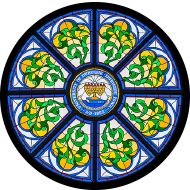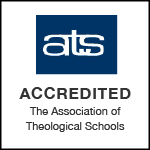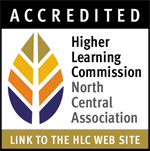Field Education Information
Rev. Sue LeFeber
Director
Email: slefeber@dbq.edu
Phone: 563.589.3114
Fax: 563.589.3628
Ms. Rachel Vander Broek
Secretary
Email: rvanderb@dbq.edu
Phone: 563.589.3115
SPM Criteria For Receiving Credit
Supervised Practice of Ministry (SPM) and Field Education Courses (FE)
Supervised Practice of Ministry (SPM) and Field Education Courses (FE) are integral parts of the UDTS curriculum. The SPM settings and FE courses provide numerous opportunities for seminary students to integrate theological reflection and pastoral leadership practice. At the University of Dubuque Theological Seminary, SPM is viewed as a formative experience where each student, with the guidance and support of faculty, trained supervisors, and committed laity, can develop the skills and capacities for a life of joyful service to Christ.
Purpose of SPM
Field education serves several major purposes within the seminary curriculum. It fosters integration within the matrix of serious study, spiritual formation, practical skills for ministry and previous experience. It also serves as a valuable arena to test and confirm one's vocational call.
The SPM placements and FE Courses will enable students to:
1. develop the capacity for integrating theological reflection
and the practice of Christian ministry
2. develop skills and capacities for faithful and joyful
Christian ministry; and
3. develop a holistic understanding of the pastoral vocation
wherein ministry, relationships, personal spirituality,
and self care are held in a creative and faithful balance
Integration
Ministry is a vocation which draws upon the wisdom and increased competence of experience, as well as the clarity of thought gained from study and reflection. It is inherently a combination of theory and practice, concepts and skills, ideas and relationships, critical reflection and action. Field education serves to integrate the learning gained from biblical studies; systematic, historical, and practical theology; and church history. Students should be prompted to think through the theological values underlying their preaching, teaching, programs, and other aspects of ministry.
Experience and Skills
While ministry cannot be reduced to skills and activities, skills are needed to interpret and communicate the Christian faith and tradition. In field education, students are given opportunities to perform tasks which draw upon and develop skills necessary for ministry under the guidance of a more experienced colleague, the supervisor. The lay committee has the opportunity to give support and feedback as you learn and gain experience in new areas of ministry.
Ministry Gifts
Field education enables students to identify, confirm, and develop their gifts for service to the church. It can also help you discover important areas for additional work as you seek to develop increased competency. The student, seminary, supervisor, and lay committee work together to set intentional learning goals. Within the SPM context you will have the opportunity to receive helpful feedback and affirmation in the areas where you demonstrate genuine ministry gifts. You will also gain valuable feedback and support in those areas that need further strengthening.
Vocational Call
Field education allows the opportunity to test different facets of ministry and helps a student determine their suitablity for them. This is a valuable help as students seek to determine their own sense of call. Along with the ongoing assessment by denominational committees overseeing the candidacy process, the seminary SPM program can help guide and prepare students for future ministry. A call is not just an inner conviction, but is something which must be tested and confirmed by other members of the Church. The ministry setting is a natural place to evaluate one's readiness for ministry.
Academic Credits and Program Requirements
Four credits of Supervised Practice of Ministry plus four credits for the completion of the four Field Education Courses are required for the Master of Divinity Degree. The Supervised Practice of Ministry requirements may be fulfilled through placements during the academic year or summer or through longer internships. During the fall and spring semesters, Supervised Practice experiences are coupled with Field Education Courses. Students may register for SPM only after their first full year of study and must undergo a background check prior to placement. SPM must be undertaken in an approved SPM setting and must include supervisory conversations at least every other week. Evaluations are provided by supervisors, lay committees and students themselves. In completing the four credit SPM requirement, students focus on areas of pastoral ministry such as preaching, visitation, teaching, counseling, or evangelism. Up to two credits of Supervised Practice of Ministry may be earned through participation in Clinical Pastoral Education (CPE). Normally, at least two credits of Supervised Practice must be earned in a parish setting. A maximum of 14 credit hours in SPM/FE may be taken in the Master of Divinity program. To review the four Field Education Courses: SPM Catalog Description
Credit
The SPM will be graded "Pass" or "Fail." The Field Education Instructor, in consultation with the Director of Field Education will grant the grade. It will be listed as a credit if the evaluations and course work are satisfactory. If one or more of the evaluations is questionable, the Director of Field Education will call the student's supervisor and together they will decide whether the student should receive credit or no credit.
A grade cannot be given until all evaluations are in. It is the student's responsibility to see to it that the supervisor and the lay committee complete the evaluations and send them in by the final deadline date.
All evaluations and course materials must be turned in by the last day of the semester or no credit can be granted. Students needing an extension may use the regular seminary policy for extensions, which includes writing to the Dean of the Seminary, requesting the extension for a definite period of time, and giving the reasons for the extension.
Summary
SPM involves careful planning, hard work and intentionality on the part of the student, the gifts of time and counsel on the part of the field supervisor, careful feedback and genuine support on the part of the lay committee, and thorough evaluations by all. Yet it is not just the student who gains by this process. In helping a student prepare for ministry, the field supervisor gains new ideas and insights into his or her own ministry work, as well as forms collegial bonds of caring and support. By working cooperatively with the student, the lay committee members are able to exercise their own ministry gifts and serve the church as they help train a future leader. They are also recipients of the benefits of the student's growing skills to minister to a congregation.
Each party in the field education process has an opportunity to serve and to be served. As a result, the whole church is strengthened. May this bring spiritual growth to all and glory to God!





